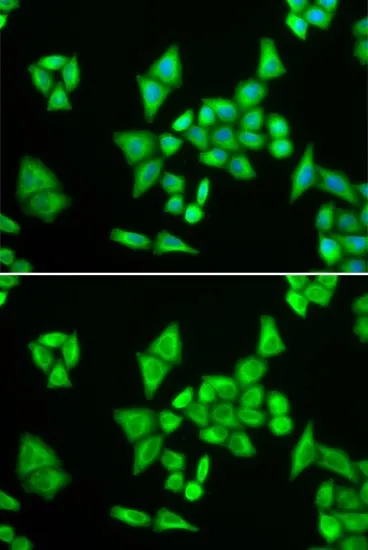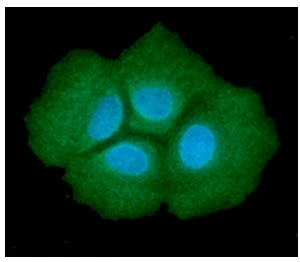
ICC/IF analysis of Hep3B cells using GTX57653 ADSL antibody. Blue: DAPI Green: Primary antibody Dilution: 1:100
ADSL antibody [AT16C10]
GTX57653
ApplicationsFlow Cytometry, ImmunoFluorescence, Western Blot, ImmunoCytoChemistry
Product group Antibodies
ReactivityHuman
TargetADSL
Overview
- SupplierGeneTex
- Product NameADSL antibody [AT16C10]
- Delivery Days Customer9
- ApplicationsFlow Cytometry, ImmunoFluorescence, Western Blot, ImmunoCytoChemistry
- CertificationResearch Use Only
- ClonalityMonoclonal
- Clone IDAT16C10
- Concentration1 mg/ml
- ConjugateUnconjugated
- Gene ID158
- Target nameADSL
- Target descriptionadenylosuccinate lyase
- Target synonymsAMPS, ASASE, ASL, adenylosuccinate lyase, adenylosuccinase
- HostMouse
- IsotypeIgG1
- Protein IDP30566
- Protein NameAdenylosuccinate lyase
- Scientific DescriptionThe protein encoded by this gene belongs to the lyase 1 family. It is an essential enzyme involved in purine metabolism, and catalyzes two non-sequential reactions in the de novo purine biosynthetic pathway: the conversion of succinylaminoimidazole carboxamide ribotide (SAICAR) to aminoimidazole carboxamide ribotide (AICAR) and the conversion of adenylosuccinate (S-AMP) to adenosine monophosphate (AMP). Mutations in this gene are associated with adenylosuccinase deficiency (ADSLD), a disorder marked with psychomotor retardation, epilepsy or autistic features. Alternatively spliced transcript variants have been found for this gene. [provided by RefSeq, Dec 2015]
- ReactivityHuman
- Storage Instruction-20°C or -80°C,2°C to 8°C
- UNSPSC41116161

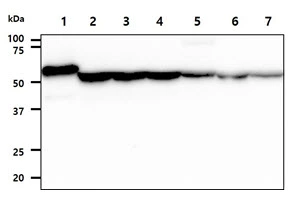
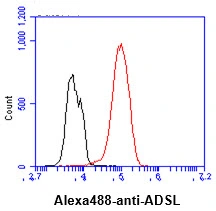
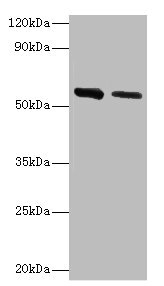
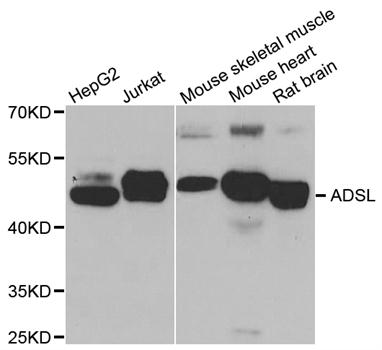


![FACS analysis of HEK293T cells transfected with either ADSL plasmid(Red) or empty vector control plasmid(Blue) using GTX84956 ADSL antibody [2D10].](https://www.genetex.com/upload/website/prouct_img/normal/GTX84956/GTX84956_638_FACS_w_23061420_499.webp)
![ADSL antibody [N3C3] detects ADSL protein at cytosol on mouse fore brain by immunohistochemical analysis. Sample: Paraffin-embedded mouse fore brain. ADSL antibody [N3C3] (GTX114243) dilution: 1:500.
Antigen Retrieval: Trilogy? (EDTA based, pH 8.0) buffer, 15min](https://www.genetex.com/upload/website/prouct_img/normal/GTX114243/GTX114243_40156_IHC_M_w_23060501_181.webp)
